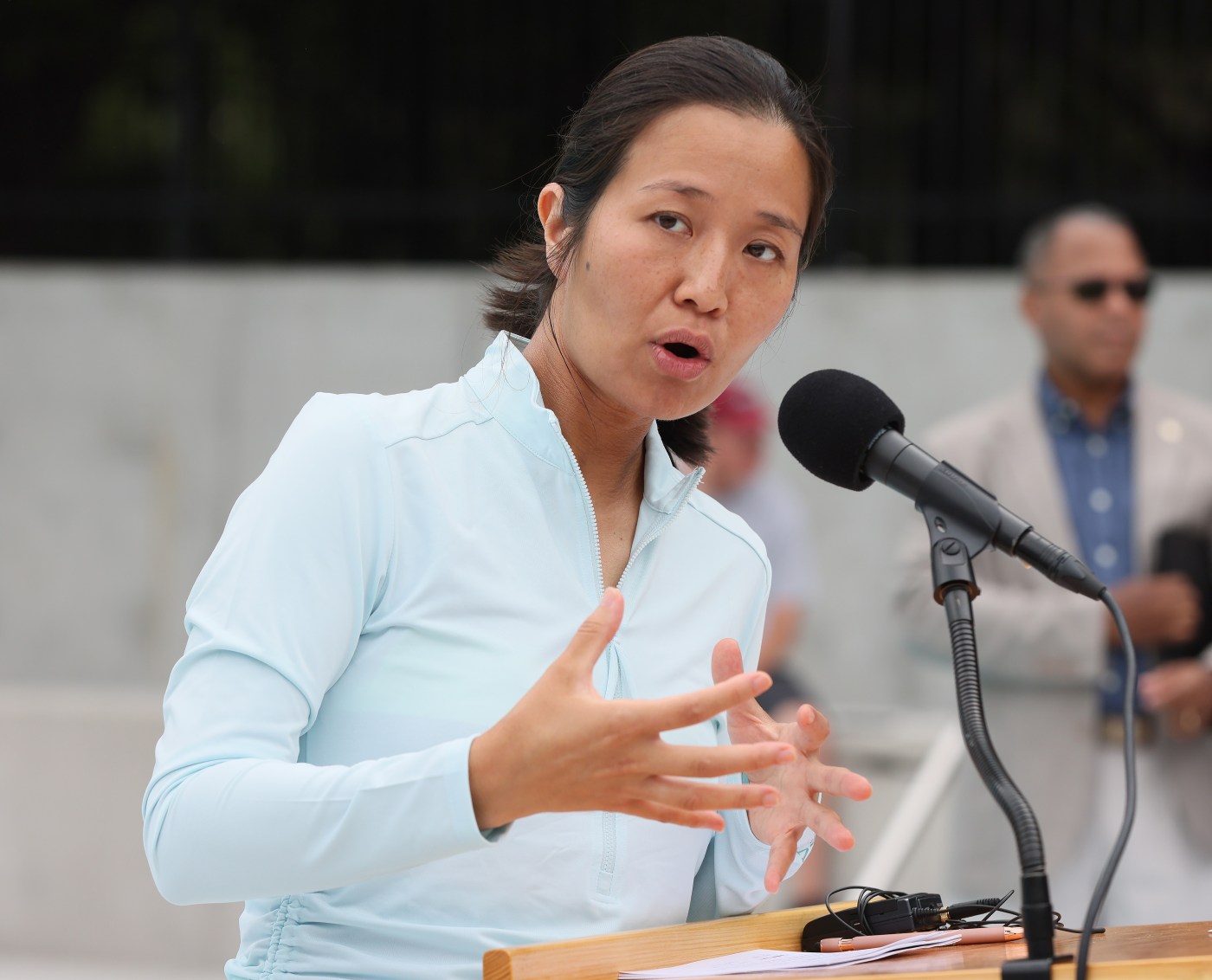
Boston Mayor Wu’s plan to increase commercial tax rates advances in Legislature
Despite being met with skepticism last week at the State House, Boston Mayor Michelle Wu’s plan to tax businesses beyond the state limit cleared its first hurdle in the Legislature, when it was reported favorably out of a joint committee.
A spokesman for Susan Moran, Senate Chair of the Joint Committee on Revenue, said Thursday that the bill was reported favorably out of committee Wednesday night, and “will now be going to the House,” while referring further questions on its status to House leadership.
“The bill is under review by the House Committee on Ways and Means,” a spokesperson for House Speaker Ron Mariano said on Thursday.
State Rep. Aaron Michlewitz, chair of the Committee on Ways and Means, which will decide whether to advance the bill to the House floor, did not respond to a request for comment.
Wu has maintained that the bill, which seeks to shift more of the tax burden from the residential to commercial sector beyond the 175% allowed by state law, is necessary to stave off the “shock” of a 16.5% property tax increase homeowners would otherwise be hit with next year, due to declining commercial values.
“We are grateful to Revenue Chairs (Mark) Cusack and Moran, along with all the committee members, for their due diligence and for advancing this legislation,” a Wu spokesperson said in a statement. “We look forward to continued conversations with the Legislature on keeping residents in their homes and supporting the needs of our commercial sector.”
News of the bill’s advancement on Beacon Hill came as a surprise to some, who pointed to the chilly reception the mayor’s proposal received from state lawmakers at last Tuesday’s hearing and their belief that it would cause long-lasting harm to the economy, such as by further depreciating the values of commercial properties.
“I’m surprised, just because it’s very clear to me, who, my entire career is focused on property tax, that this is bad policy,” said Daniel Swift, a principal at Ryan, a global tax consulting firm. “For that reason alone, it’s surprising that it’s made it this far. I think there are alternative answers to this.”
Swift said that businesses will be hurt by both increased taxes and the snowball effect it will have on further depreciating commercial property values, which have taken a hit from the remote and hybrid work patterns that have continued after the pandemic.
Residents, whom the mayor is seeking to protect with the legislation, will instead be hurt in the long run, Swift said, in terms of how the declining office values will further erode the city’s commercial tax base and push more of the tax burden onto the residential sector — a scenario the bill is seeking to resolve in the short term.
James Rooney, president and CEO of the Greater Boston Chamber of Commerce, said in a statement that the “Chamber continues to voice concern about the detrimental impact” that the mayor’s tax plan “will have on commercial real estate as well as tenants of commercial properties, including small businesses.”
Related Articles
As crowds and drug use return, Boston city councilor says Mass and Cass approach has been a ‘failure’ and needs to be reevaluated
As mayor pitches higher business taxes, analysis shows Boston favors homeowners at among highest rates in the country
Mayor tours summer gardening program and outdoor classroom with Boston students
Big Brother is watching you: Boston Police surveillance detailed in new report
Boston Mayor Michelle Wu is pregnant with third child, will seek reelection
“The impact of this tax increase will be felt statewide as Boston remains the economic engine for New England,” Rooney said. “We urge the city to prioritize public policy solutions that ease the cost of doing business and incentives that encourage both employers and employees to remain in Boston.”
The bill, filed by state Rep. Rob Consalvo, calls for a change in the city’s tax classification shift that would last for four years. It would allow the maximum shift to increase to up to 200% next year, and decrease annually until returning to the standard limit in year five.
While the legislation has been bashed by a global tax expert, business leaders, industry groups and fiscal watchdogs that have pushed for alternatives like slowing the growth of the city budget, which increased by 8% this fiscal year, and dipping into the city’s roughly $1 billion reserves to provide the desired tax relief, it had staunch support from residents who testified at last week’s hearing.
Residents, the mayor, and her administration argued that a double-digit tax increase — which Wu projects at 33% for third quarter bills — would push out many people, including homeowners and the renters who may have higher tax costs passed down to them through higher rents imposed by their landlords.

